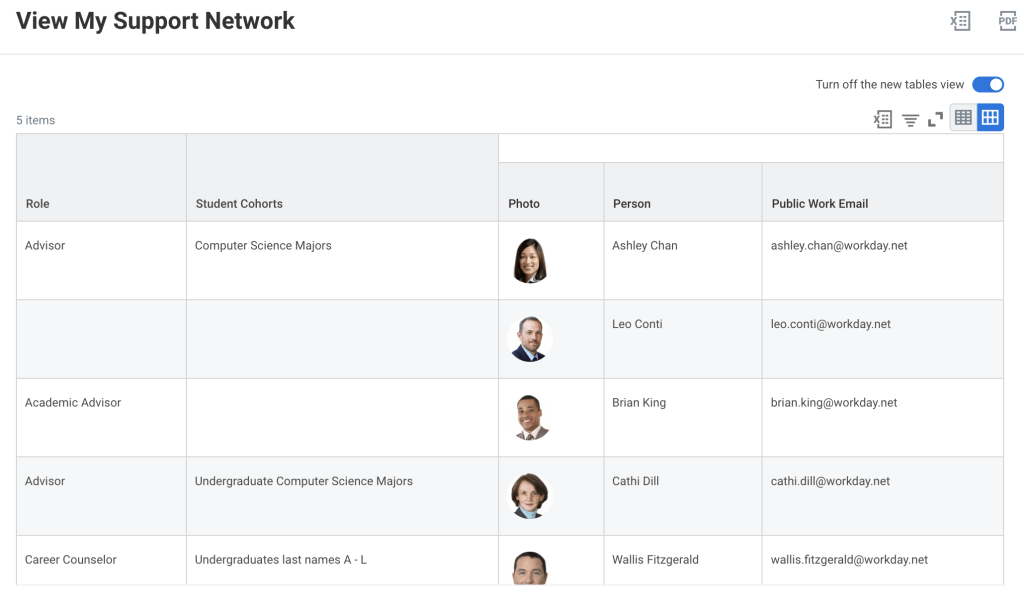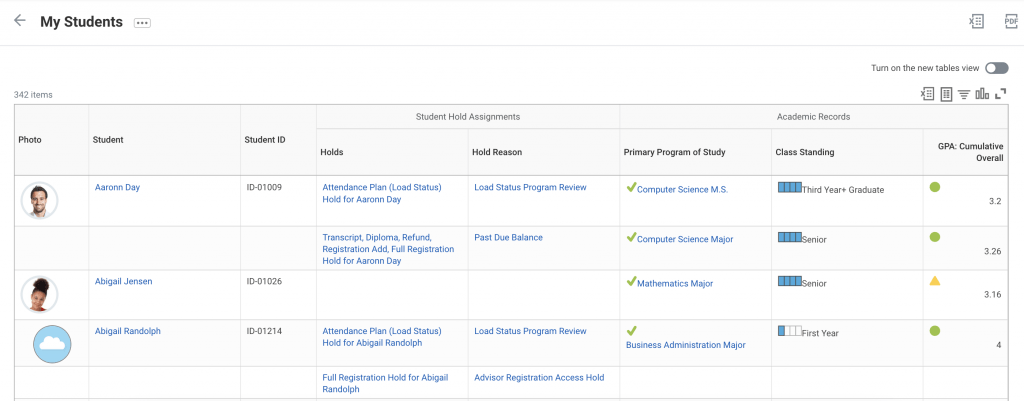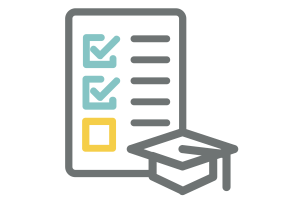WashU leadership has committed to using Workday Student as the universal tool for advising and degree audit across the university.
Adopting one tool for these purposes will create a more streamlined experience for students – especially those studying across schools – as well as the faculty and staff who support them.
WashU will use Workday Student for the following advising-related activities:
- Maintaining academic requirements for programs of study
- Advisor assignments
- Academic planning, including pre-registration support
- Academic progress tracking, notes and final degree audit
⏯️ Featured
Watch Advising Students in Workday, part of the Workday Student Sneak Peeks webinar series. See demos of the new system that all advisors and students will begin using in Spring 2025.
Key changes
Advisor collaboration
In Workday, we’ll have more than a dozen advisor roles. These roles represent the holistic nature of advising at WashU and include those who support students in their educational objectives and overall experience. For example, academic and faculty advisors as well as staff who work with international students or TRIO Scholars will have advisor roles in Workday.
Advisor roles in Workday include:
- Academic Advisor
- Faculty Advisor
- Faculty Coach
- Career Advisor
- Pre-Professional Advisor
- Experiential Learning / Field Advisor
- Research Advisor
- Dissertation/Thesis Advisor
- Dissertation/Thesis Committee Member
- Progress Advisor
- Student Support Advisor
- Immigration Advisor
- Financial Aid Advisor
- Peer Advisor
- Peer Support Advisor
Watch this clip from the Advising Students in Workday webinar for details on these roles.
All these advisors will use Workday Student, rather than disparate systems or manual processes, to manage advising activities. They will be able to view notes from other advisors assigned to the same student, enabling stronger coordination.
This convergence of advisors will provide a more centralized, consistent experience for students, particularly those studying across schools or departments.

Academic progress tracking
Academic (program) requirements, e.g., courses, number of credit hours, grades, GPA, etc., will be configured in Workday and applied to a student’s record based on their program of study. For example, a student pursuing a master’s in computer science would automatically have that program’s requirements populated on their Workday profile.
As a student completes each requirement, e.g., passes a course with the required grade, their progress will be reflected on their record. This in-system tracking will make it easier for students and their advisors to see what’s needed to graduate and how a student is progressing. Having academic requirements configured in the system should also streamline the final degree audit process, which is currently a cumbersome activity.

Academic planning
Advisors will be able to better support students who study across programs or schools since all programs’ academic requirements will be housed in the same system. For example, a student and their advisor can better evaluate the impact of switching their program of study or adding a minor.
While some schools currently have academic planning tools available, Workday will consolidate this functionality, creating a more consistent experience for students. Academic plans, as well as backup plans, can be created to plan out academic requirements, i.e., what semester/year to take a particular course. Students can then use their academic plans to develop saved schedules to use during registration.
Systems
Workday Student will replace all systems, as well as any manual or paper-based processes, currently used for advising and degree audit activities, including advising notes and academic planning. This shift will be a significant change; however, the benefits of unifying our work are anticipated to outweigh the challenges. Read more »
Systems that will no longer be used for these functions include SIS and its web applications WUachieve, WebAdvising, WebSTAC, WebFAC, as well as school-specific systems, such as PlanIT (Arts & Sciences), and BASe (Olin).
Reporting
Advisors will be able to view each student’s complete academic record in Workday, providing a comprehensive view of how a student is progressing. They will also be able to track how their advisees are doing collectively through reports and dashboards.

Contacts
Questions?
Please contact Sean McWilliams, our advising change manager, who serves as a liaison between the WashU community and the project.
Alternatively, you can submit questions or comments through this form.
Project team members
- Kathy Steiner-Lang, functional lead
- Tina Kennett, principal business analyst
- Melissa Gendron, support business analyst
- Sean McWilliams, change manager
- Allison Braun, communications specialist
- Tiffany Saffell, instructional designer
- Daria Carson-Dussán, technical writer
Campus team members
View the Sunrise campus teams roster to see who’s on the Advising, Degree Audit & Curriculum campus team from your school or unit. Campus team members provide input on how Workday Student is configured and insight into how changes will affect their area.
Learn more about Sunrise campus teams
Related Resources
Current state assessment
Sunrise project work related to advising is informed by an advising current state assessment developed during the Discovery Phase.
Articles
These articles are from past issues of Sunrise Spotlight, the project’s newsletter.
View all articles or sign up to receive future issues




